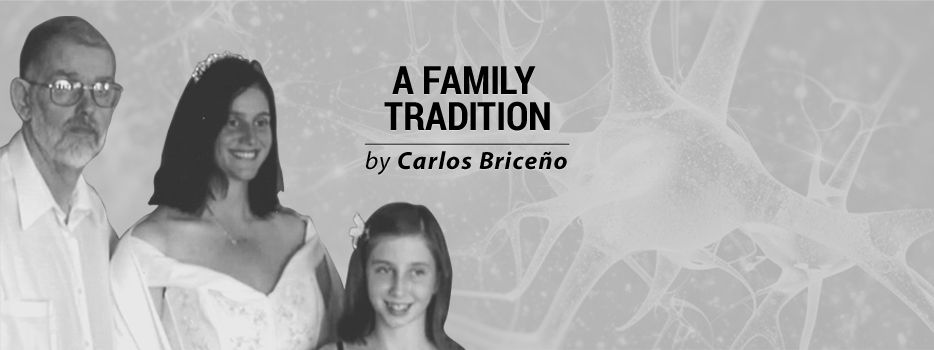Life Is Short, So Live It Well
Written by |

The anniversary of my sister’s death is coming up in about a month.
Rose died on Halloween last year after a massive red oak tree fell on the car she was in during a fierce storm. The car was parked in her driveway, and the tree was from a neighbor’s yard. She was 59.
My other sister died from cancer in 2005.
I am the youngest in my family, and when I was young, I never thought that one day, I would be older than my sisters. Because I’m 56, I’m older than my oldest sister, who died at 45. In four years, I will be older than my other sister — if I live that long, of course. That’s not meant to be ominous, because I’m currently healthy, but you never know what can happen in life, a fact I don’t take for granted anymore. If you think about it, we’re all terminal.
Because of my sisters’ deaths at ages I consider way too young, and the fact that my wife and daughter have Huntington’s disease, a terminal illness that probably won’t let them live as long as I want them to, the concept of death has caused me to ponder an interesting question: What is an appropriate age to die?
When I first started to wonder about this after the tragic death of Rose, who was looking forward to retirement in a few years, I thought of those who I believed had died too young — John Lennon, for example, or the beloved short story author Raymond Carver. All of their hopes and plans for the future were just gone. I believed they still had many great years ahead of them. The world, along with their families and friends, were denied more of their presence, talents, and love.
I realize that death is part of life. But there’s been a shift in my thinking about it. Rather than wondering why everyone doesn’t live to at least 75, I’ve started to ask these questions instead: What kind of an abundant life are people living? Are they bringing joy to their lives and to those around them? Are they loving and forgiving well? Are they showing mercy? Are they using their talents to the fullest? Are they trying to overcome obstacles in life with fortitude and courage? In other words, are they living life well, rather than being mired in pity parties, anger, and unhappiness?
My wife and daughter inspire me to think like this because this is how they try to live. They know the clock is ticking, and each tick moves them closer to misery. But they love life and know what’s important.
I realize life is difficult. People are facing hurricanes, the coronavirus, job layoffs, forest fires, rare diseases, issues with work and family life, and so on. But the kind of mindset you have in life will help you to cope, especially if you realize that life can be way too short.
My questions now center on these thoughts: If you were to die tomorrow, was your life abundant? Did you live, laugh, and love with the same passion and fullness of life highlighted in the following quote from one of the stars from the Beat Generation, Jack Kerouac?
“The only people for me are the mad ones, the ones who are mad to live, mad to talk, mad to be saved, desirous of everything at the same time, the ones who never yawn or say a commonplace thing, but burn, burn, burn, like fabulous yellow roman candles exploding like spiders across the stars and in the middle you see the blue centerlight pop and everybody goes ‘Awww!’”
If you’ve lived like this, then the age of your death won’t matter because you have lived — and that, dear reader, is what living should be about.
***
Note: Huntington’s Disease News is strictly a news and information website about the disease. It does not provide medical advice, diagnosis, or treatment. This content is not intended to be a substitute for professional medical advice, diagnosis, or treatment. Always seek the advice of your physician or other qualified health provider with any questions you may have regarding a medical condition. Never disregard professional medical advice or delay in seeking it because of something you have read on this website. The opinions expressed in this column are not those of Huntington’s Disease News or its parent company, Bionews, and are intended to spark discussion about issues pertaining to Huntington’s disease.



Leave a comment
Fill in the required fields to post. Your email address will not be published.